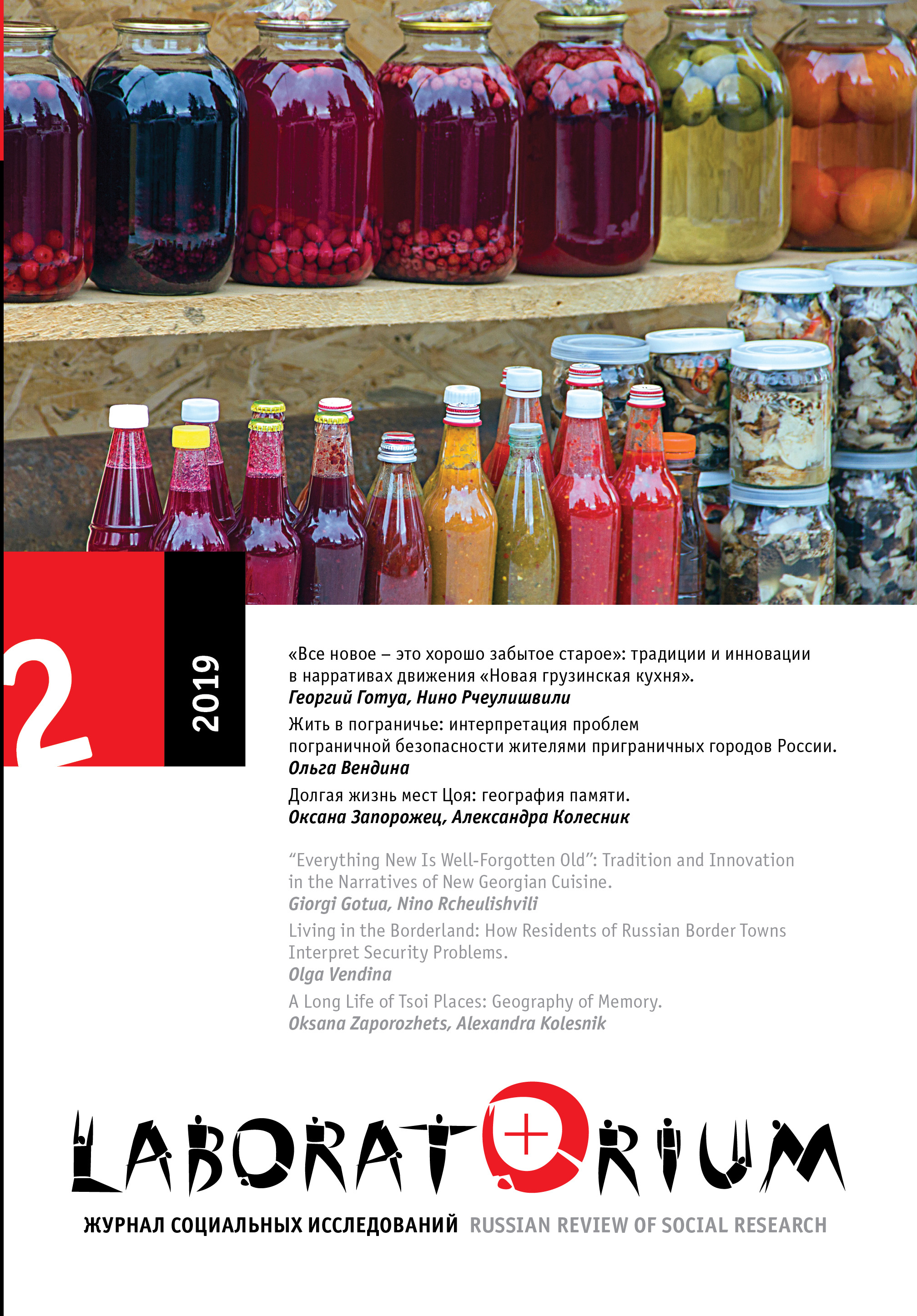Долгая жизнь мест Цоя: география памяти
A Long Life of Tsoi Places: Geography of Memory
Author(s): Alexandra Kolesnik, Oksana ZaporozhetsSubject(s): Music, Sociology of Culture, Transformation Period (1990 - 2010)
Published by: Центр независимых социологических исследований (ЦНСИ)
Keywords: Viktor Tsoi; Kino; Rock Music; Vernacular Memory; Urban Memory; Music Geography;
Summary/Abstract: This article considers the specificity of urban memory and memory places of cultural heroes in modern Russian cities. We analyze nonconventional memory sites that arise spontaneously and are supported by different agents and communities. The article is focused on the places dedicated to the memory of Viktor Tsoi, leader of the famous Leningrad rock band Kino. These places appeared after the musician’s death in August 1990. While in the early 1990s “Tsoi places” existed in practically all of the major cities of the post-Soviet world, only a few of them still exist at present. The key places are the Tsoi Wall in Moscow and the rock club (and part-time museum) Kamchatka in Saint Petersburg. Our study is based on interviews with visitors to these “Tsoi places” and long-term observations conducted by the authors. The article revises modern approaches to the study of urban memory, focusing on the most relevant studies of memory that exist in space and through space (foremost, the geography of memory). Analyzing “Tsoi places,” we characterize them through the category of “vernacular memory”: spontaneously emerging, ordinary forms of experience that exist outside of institutional logic. We also show that these “Tsoi places” have been substantially transformed over the almost 30 years of their existence—they have turned from closed places of fan communities into sites accessible to different users (citizens, tourists, passers-by). We demonstrate that the expansion of creators and users of the “Tsoi places” influenced the increase in number and complexity of the memory registers associated with them. Finally, the article notes that, despite the change in status of the “Tsoi places,” they are still poorly institutionalized (unlike their foreign counterparts), while preserving to a certain extent their spontaneity.
Journal: Laboratorium. Журнал социальных исследований
- Issue Year: 11/2019
- Issue No: 2
- Page Range: 70-102
- Page Count: 33
- Language: Russian

